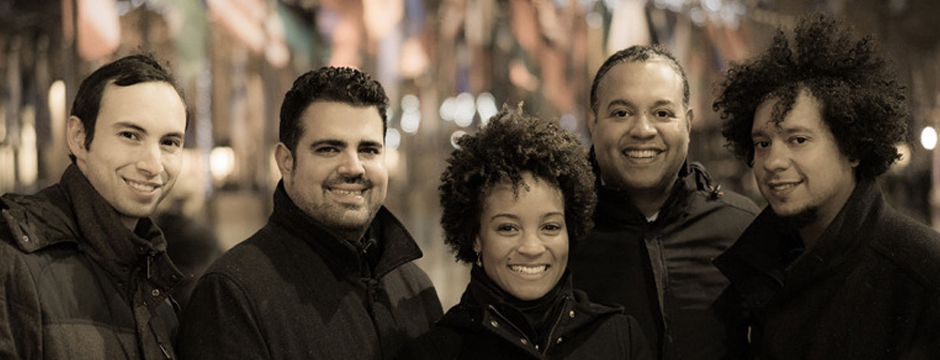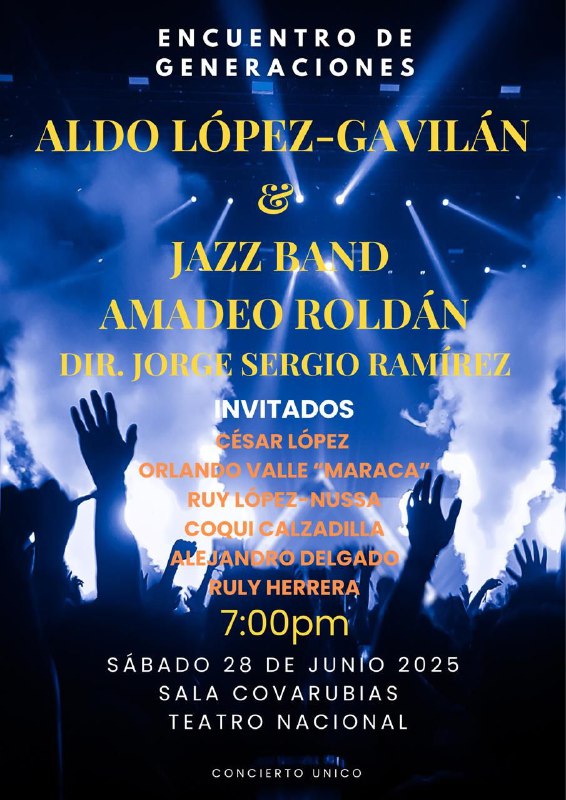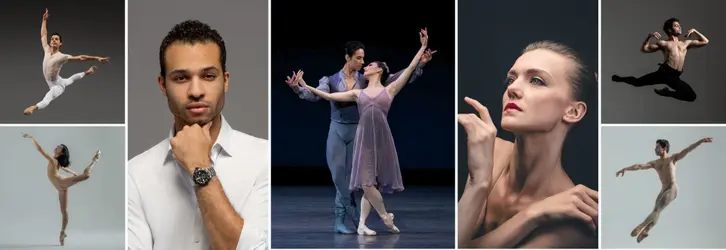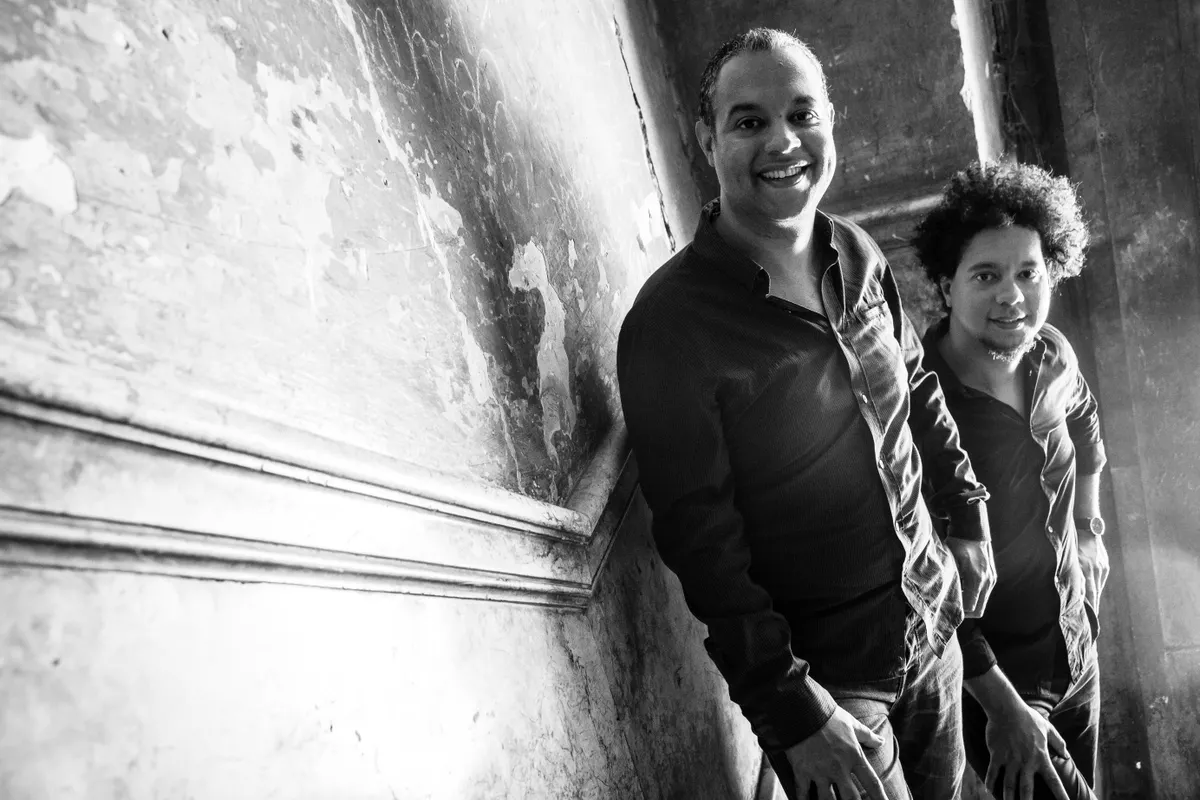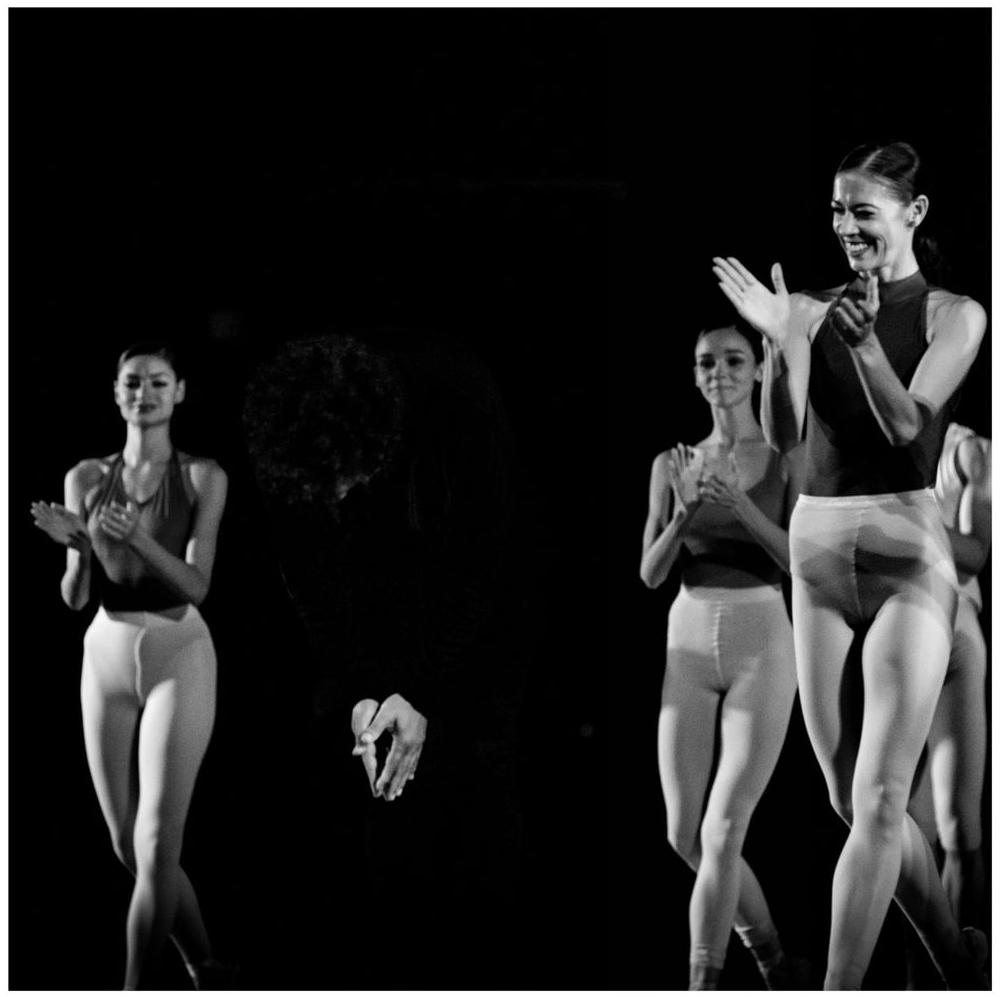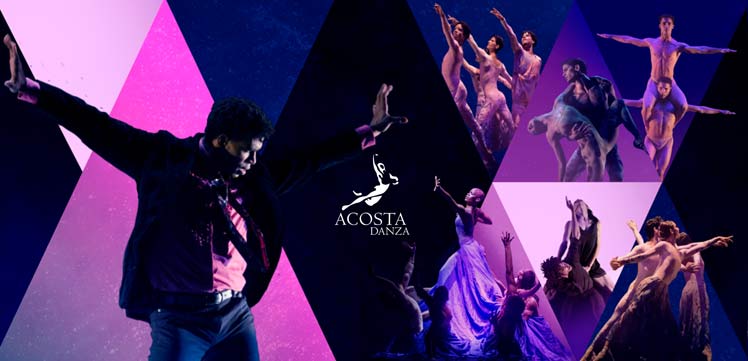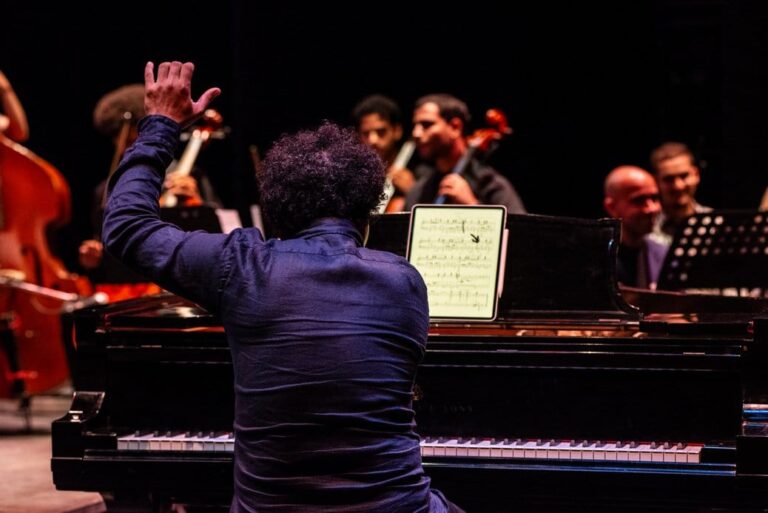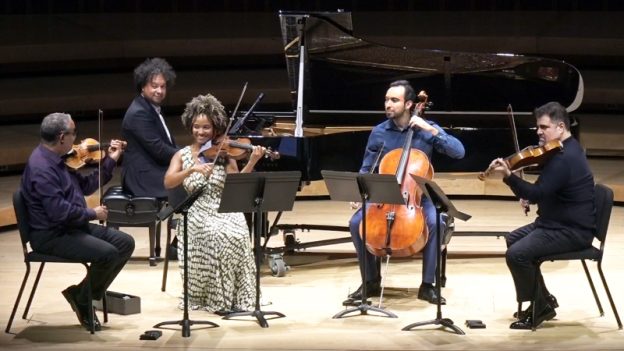 L-R: Ilmar Gavilán, Aldo López-Gavilán, Melissa White, Jaime Amador, and Felix Umansky in performance at Emerson Hall, Schwartz Center for Performing Arts, September 26, 2025. (courtesy of SCPA)
L-R: Ilmar Gavilán, Aldo López-Gavilán, Melissa White, Jaime Amador, and Felix Umansky in performance at Emerson Hall, Schwartz Center for Performing Arts, September 26, 2025. (courtesy of SCPA)
Mark Gresham | 26 SEP 2025
On Friday night, the Harlem Quartet (violinists Ilmar Gavilán and Melissa White, violist Jaime Amador, and cellist Felix Umansky) were joined by Cuban pianist-composer Aldo López-Gavilán for a program that blended Romantic chamber music, contemporary Cuban works, and jazz at the Schwartz Center for Performing Arts’ Emerson Hall.
The evening opened with Robert Schumann’s Piano Quintet in E-flat Major, Op. 44. Schumann’s quintet—one of the cornerstones of the chamber repertoire—was given a reading that infused the familiar work with new vitality. In particular, the “Allegro brillante” moved with brisk energy, and felt fresh for such an oft-performed work. The “Adagio espressivo” unfolded nicely in long, lyrical lines. The Scherzo was appropriately fleet, and the Finale combined playful motifs with virtuosic flourishes.
After intermission came music that was not so familiar: four of López-Gavilán’s own compositions, Epilogo, Viernes de Ciudad, Eclypse, and Pan con Timba, highlighting the fusion of classical form, Cuban rhythms, and jazz-inflected harmonies that characterizes his work.
A classically trained pianist who moves fluidly between genres, López-Gavilán writes music that combines the structural rigor of chamber music with Afro-Cuban dance rhythms and jazz improvisation. The Harlem Quartet—formed in 2006 and known for bridging classical and jazz traditions—has made a specialty of performing and recording with López-Gavilán, whose brother, Ilmar Gavilán, is the quartet’s first violinist.
Epílogo opened the set with a dreamlike lyrical theme flowing across shifting harmonies. Originally written for piano, clarinet, and orchestra, this version for piano quintet is one of the pieces on the Harlem Quartet’s 2024 album Havana Meets Harlem. Its canon-like passages and layered rhythmic textures created a sense of reflective introspection, bridging classical sensibility with Cuban and jazz elements.
Viernes de Ciudad followed, a musical portrait of urban life that moves from dawn to late-night energy. The work evokes the rhythms and atmospheres of diverse neighborhoods, unfolding through evolving moods, contrapuntal textures, and gradual crescendos. The quartet and pianist captured the sense of journey embedded in the music, highlighting López-Gavilán’s interest in connecting daily life and cultural diversity to sound.
Eclypse (or Eclipse) offered a more intimate counterpoint. Originally composed for violin and piano, with López-Gavilán’s brother, Ilmar, in mind, the lyrical interplay between piano and strings conveyed a quiet intensity and emotional nuance, exploring themes of longing and separation.
The set concluded with Pan con Timba, a jubilant work rooted in Afro-Cuban dance rhythms. Its title—“bread with timba”—reflects the composer’s blending of the everyday with exuberant, percussive musical energy. The quartet and López-Gavilán delivered the piece with infectious rhythm and buoyant humor, leaving the audience with a palpable sense of celebration.
To close the concert, the ensemble performed its own arrangement of Billy Strayhorn’s Take the A Train. The familiar jazz standard, which was the signature tune of the Duke Ellington orchestra, drew warm applause and closed the evening on an upbeat note. ■
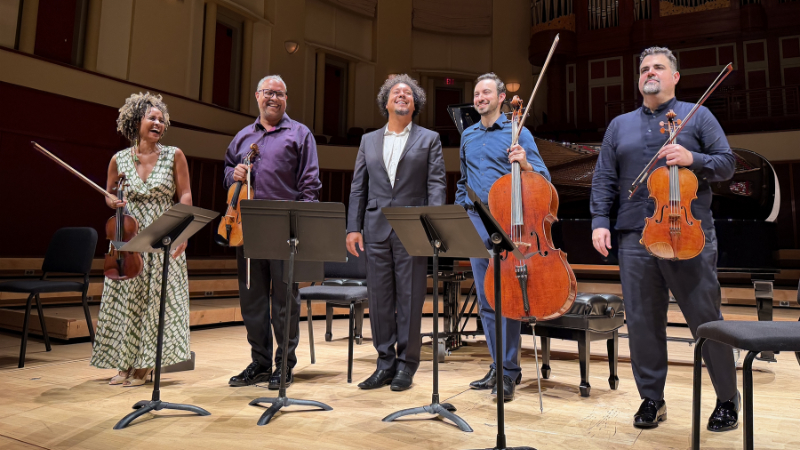 L-R: Melissa White, Ilmar Gavilán, Aldo López-Gavilán, Felix Umansky, and Jaime Amador take a post-concert bow at Emerson Hall, Schwartz Center for Performing Arts, September 26, 2025. (crecit: Bill Head)
L-R: Melissa White, Ilmar Gavilán, Aldo López-Gavilán, Felix Umansky, and Jaime Amador take a post-concert bow at Emerson Hall, Schwartz Center for Performing Arts, September 26, 2025. (crecit: Bill Head)
September 29, 2025
Schwartz Center for Performing Arts, Emerson Hall
Atlanta, Georgia – USA
Harlem Quartet (Ilmar Gavilán & Melissa White, violins; Jaime Amador, viola; Felix Umansky, cello); Aldo López-Gavilán, piano.
Robert SCHUMANN: Piano Quintet in E-flat Major, op. 44
Aldo LÓPEZ-GAVILÁN: Epilogo
Aldo LÓPEZ-GAVILÁN: Viernes de Ciudad
Aldo LÓPEZ-GAVILÁN: Eclypse
Aldo LÓPEZ-GAVILÁN: Pan con Timba
Billy STRAYHORN: Take the A Train (arr. Harlem Quartet and Aldo Lopez-Gavilan)

